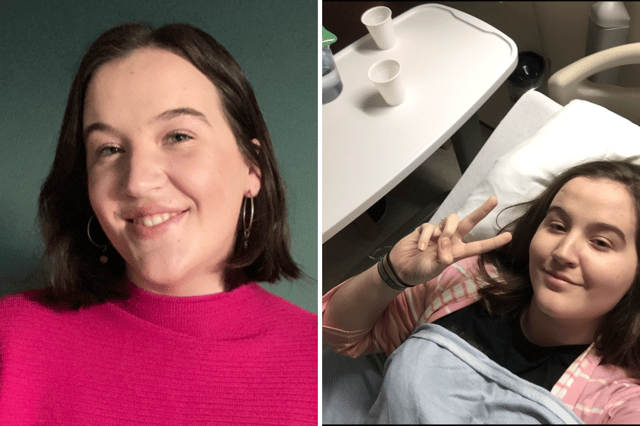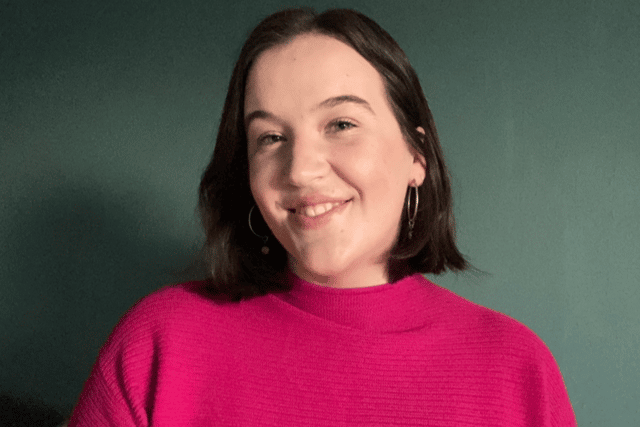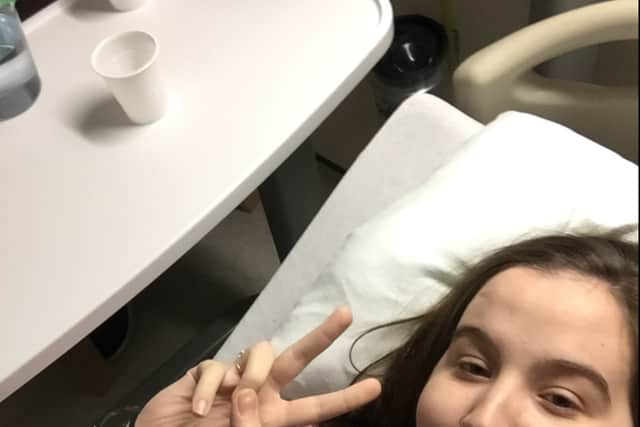Crohn’s & Colitis Awareness Week 2022: what I have learned from living with Crohn’s Disease since 18-years-old


Your first music festival is supposed to be a liberating experience. My first festival was when I was 17-years-old and I joined a bunch of mates at T In The Park.
I was looking forward to a weekend full of music and making memories with my friends. My main concern at the time was getting a good view for the likes of Arctic Monkeys and Biffy Clyro.
Advertisement
Hide AdAdvertisement
Hide AdHowever, it was during this weekend that I started noticing something I knew wasn’t right. I was bleeding, and not in a way I had ever done so before.
I’ll save the in-depth details of the situation I found myself in inside the charming T In The Park porta-potties. It immediately concerned me, but I was there to have fun so I tried to push it out of my mind for the remainder of the weekend hoping it would magically fix itself (because a music festival is famously soothing for the body…).
Cut to one year later and at 18-years-old I was diagnosed with Crohn’s Disease. Now, at 25, I’ve learned a lot about my body, my illness, my triggers and how to cope. With it being Crohn’s & Colitis Awareness Week 2022, it has given me the chance to look at my journey so far.


I remember hearing the words “Crohn’s Disease” for the first time from my doctor. It felt so huge, and with the doctor telling me about the ways it would impact my life for the rest of my life.
Advertisement
Hide AdAdvertisement
Hide AdI had no idea what this was. It sounded so serious - words like ‘chronic’ and ‘remission’ made my mind jump to the worst possible situation.
But now that I have been living with this invisible illness for the past seven years, I’ve learned that it’s not something to fear, it’s something which is a part of me and will always be a part of me. Not only is it a part of me, but it’s totally manageable to allow me to live my life.
One of my biggest flare-ups of symptoms was in my final year of university in 2019. I ended up being hospitalised which I believed to be caused by a mix of poor diet and stress from living exclusively off of the union’s curly fries while I completed 16-hour sessions in the library in the run-up to my dissertation hand-in.
Flare-ups and changes of medication had come and gone up until that point, but this was a particularly concerning situation. After a hospital stay of a week-and-a-half and a brand new course of medication which was - and still is - doing the trick, I was discharged 24 hours before my university graduation.


Advertisement
Hide AdAdvertisement
Hide AdI still laugh at my graduation photographs with my steroid-induced ‘moonface’ and the all too literal metaphor of my illness getting in the way of my life, but I’m also still unbelievably thankful to the staff at the Queen Elizabeth University Hospital in Glasgow for their work and for putting up with my weepy moments about possibly missing my graduation.
I had a few months of reprise and was able to get my life back on track - I moved back home and got a new job out of university. Everything was going well - that was until March 2020.
As someone who was on immunosuppressants, I was told that I had to shield during the Covid-19 lockdown and living with an invisible illness, not a lot of people realised this. I wasn’t allowed to go for a daily walk, I couldn’t do essential shopping, I couldn’t see my friends or boyfriend even socially distanced - I couldn’t leave my home for months on end.
This period was difficult. But I had a good support network of family and friends who I could phone at the drop of a hat if I needed to vent or talk to about anything. On the other side of the lockdown, I got my vaccines and today I’m fully boosted up and back to living a normal life.
Advertisement
Hide AdAdvertisement
Hide AdMy normal life won’t be the same as someone else’s normal life. I still need to watch what I eat or drink, I need to pay attention to what my body is telling me, maybe a little more than someone without a chronic illness, and I’ll more than likely be on medication for the rest of my life. But I can’t change any of it, and coming to terms with this has been the healthiest thing for me so far.
Comment Guidelines
National World encourages reader discussion on our stories. User feedback, insights and back-and-forth exchanges add a rich layer of context to reporting. Please review our Community Guidelines before commenting.
